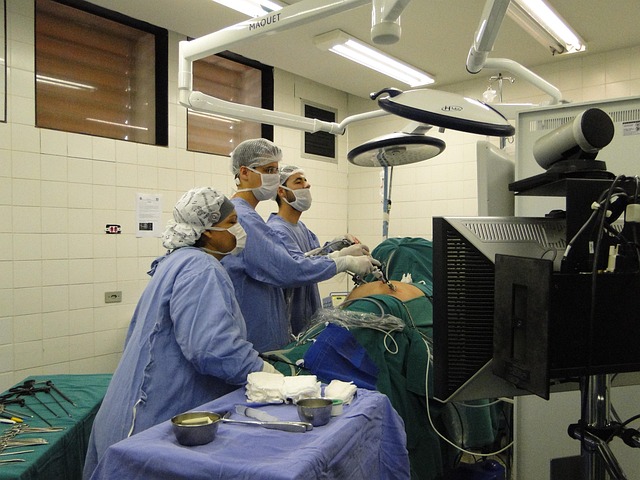Introduction
Every September, Urology Awareness Month shines a spotlight on an area of health that is often overlooked, misunderstood, or even shrouded in embarrassment. Organised by The Urology Foundation and supported by healthcare providers, charities, and patient advocates across the UK, the campaign seeks to educate the public about the vital importance of urological health.
Urology Awareness Month 2025 arrives at a crucial time. With an ageing population, rising lifestyle-related health issues, and increased awareness of cancers and conditions affecting the urinary system, the message has never been more urgent: we must talk more openly about urology, encourage early intervention, and empower people to take charge of their health.
This article explores the significance of Urology Awareness Month 2025, the common conditions it highlights, the importance of research and innovation, and the steps individuals can take to support their own urological health.
What Is Urology and Why Does It Matter?
Urology is the branch of medicine that deals with the urinary tract in both men and women, and the male reproductive system. Urologists treat a wide range of conditions affecting the kidneys, bladder, prostate, urethra, and associated organs.
Although urology covers fundamental aspects of human health, it often carries stigma. Topics like incontinence, erectile dysfunction, or prostate problems are not always easy to discuss—even with healthcare professionals. This silence can delay diagnosis and worsen outcomes. Urology Awareness Month challenges that reluctance, creating space for open conversation and practical action.
The Goals of Urology Awareness Month 2025
The campaign aims to:
-
Raise public awareness of common urological conditions.
-
Encourage early diagnosis and treatment by reducing stigma.
-
Support fundraising and research for better treatments and cures.
-
Educate communities on lifestyle factors that impact urinary health.
-
Empower patients to seek medical advice promptly without fear or shame.
In 2025, the theme is expected to emphasise early detection and innovation. With new treatments, advanced screening methods, and patient-focused care, the hope is to transform outcomes for millions living with urological problems.
Key Urological Conditions in Focus
1. Prostate Cancer
Prostate cancer is the most common cancer in men in the UK. More than 52,000 men are diagnosed every year, and early detection remains crucial. Symptoms include difficulty urinating, frequent night-time urination, and unexplained pain.
Thanks to awareness campaigns, more men are undergoing PSA tests and digital rectal exams. But stigma and fear still prevent many from seeking help. Urology Awareness Month works to normalise these conversations, reminding men that early detection can be lifesaving.
2. Bladder Cancer
Bladder cancer is often under-discussed despite being one of the top ten most common cancers in the UK. Symptoms such as blood in urine or recurrent urinary tract infections should never be ignored. Awareness efforts in 2025 will highlight the importance of recognising warning signs early and seeking prompt medical advice.
3. Kidney Disease and Kidney Cancer
Kidney disease affects millions of people, and many cases go undiagnosed until advanced stages. Risk factors such as high blood pressure, diabetes, obesity, and smoking all contribute.
Kidney cancer is another key focus, with symptoms including persistent back pain, unexplained weight loss, and blood in the urine. Campaigns during Urology Awareness Month 2025 will emphasise lifestyle adjustments, such as staying hydrated and reducing salt intake, alongside regular check-ups.
4. Urinary Incontinence
One of the most common yet stigmatised conditions, urinary incontinence affects both men and women. It can result from childbirth, ageing, surgery, or underlying medical issues.
Many sufferers do not seek help, believing it to be a normal part of ageing. Urology Awareness Month works to dispel this myth, highlighting available treatments ranging from physiotherapy to surgical solutions.
5. Erectile Dysfunction and Male Fertility Issues
Erectile dysfunction (ED) affects millions of men and can be linked to cardiovascular health, stress, or hormonal imbalances. Fertility issues, often misunderstood, can also be tied to urological conditions.
By encouraging men to seek help without embarrassment, the campaign promotes not only better urological health but also improved mental wellbeing and relationship quality.
The Role of Lifestyle in Urological Health
Lifestyle choices have a profound impact on urological health. During Urology Awareness Month 2025, experts will emphasise practical steps individuals can take:
-
Stay hydrated: Drinking sufficient water supports kidney and bladder function.
-
Eat a balanced diet: A diet rich in fruit, vegetables, and whole grains while reducing processed foods helps prevent obesity and high blood pressure.
-
Exercise regularly: Physical activity improves circulation and lowers the risk of erectile dysfunction.
-
Limit alcohol and stop smoking: Both are major risk factors for bladder and kidney cancers.
-
Attend screenings: Men over 50 should discuss prostate checks with their GP, and anyone experiencing unusual symptoms should seek medical advice.
The Power of Awareness and Education
One of the biggest barriers to urological health is silence. Too often, people dismiss symptoms such as blood in the urine, frequent urination, or erectile difficulties as minor or embarrassing. Yet these can be early warning signs of serious conditions.
Education campaigns during September 2025 will include:
-
Public health campaigns on social media and television.
-
Community events in hospitals, clinics, and universities.
-
Patient stories shared to reduce stigma and inspire action.
-
School and workplace programmes promoting healthy lifestyle choices.
By equipping people with knowledge, Urology Awareness Month helps save lives and reduce suffering.
The Role of Research and Innovation
Medical research plays a pivotal role in improving urological health. From robotic surgery to genetic testing, innovation is transforming patient care.
Urology Awareness Month 2025 will highlight breakthroughs such as:
-
Minimally invasive surgery for kidney and prostate conditions.
-
Advanced imaging technology for earlier and more accurate diagnoses.
-
Immunotherapy and targeted drugs for bladder and kidney cancers.
-
Regenerative medicine offering potential treatments for incontinence.
Charities and healthcare providers will use the month to raise funds for further research, ensuring future generations benefit from even greater medical advances.
Supporting Urology Awareness Month 2025
Individuals and communities can support the campaign in several ways:
-
Educate yourself and others – Share reliable information with family and friends.
-
Attend events – Many local hospitals and charities host free screenings and talks.
-
Fundraise – Take part in sponsored runs, charity walks, or community fundraisers.
-
Advocate – Use social media to spread awareness and normalise discussions.
-
Donate – Support organisations like The Urology Foundation to fund vital research.
The Psychological Impact of Urological Conditions
Urological issues are not only physical—they carry emotional and psychological consequences. Conditions such as incontinence or erectile dysfunction can lead to feelings of shame, anxiety, or depression.
Part of the 2025 campaign focuses on mental health support for patients. Counselling services, support groups, and online communities can provide reassurance and connection. By addressing the whole person, not just the condition, healthcare providers can improve outcomes significantly.
Breaking Taboos: Why Talking Matters
Perhaps the most important goal of Urology Awareness Month 2025 is breaking the taboos that keep people silent. Just as breast cancer and mental health have benefitted from open discussion, urology deserves the same cultural shift.
By encouraging people to talk openly about symptoms—whether with a GP, a partner, or a support group—we remove the stigma and create a healthier, more supportive society.
Looking Ahead: The Future of Urological Health
The outlook for urological health is more promising than ever. With continued advances in diagnostics, treatments, and public awareness, outcomes are improving across the UK.
But challenges remain. Access to screenings, health inequalities, and ongoing stigma all need addressing. Urology Awareness Month 2025 is a step toward that future, ensuring more people live healthier, longer, and fuller lives.
Conclusion
Urology Awareness Month 2025 is more than a campaign—it is a movement to change perceptions, improve outcomes, and save lives. By shining a light on issues that affect millions yet remain under-discussed, it empowers individuals to take action and encourages society to prioritise urological health.
This September, the message is clear: don’t suffer in silence, speak up, get checked, and support urological health awareness. Whether through education, fundraising, or simply talking openly, everyone has a role to play. Together, we can break taboos, reduce stigma, and make a lasting difference.

















